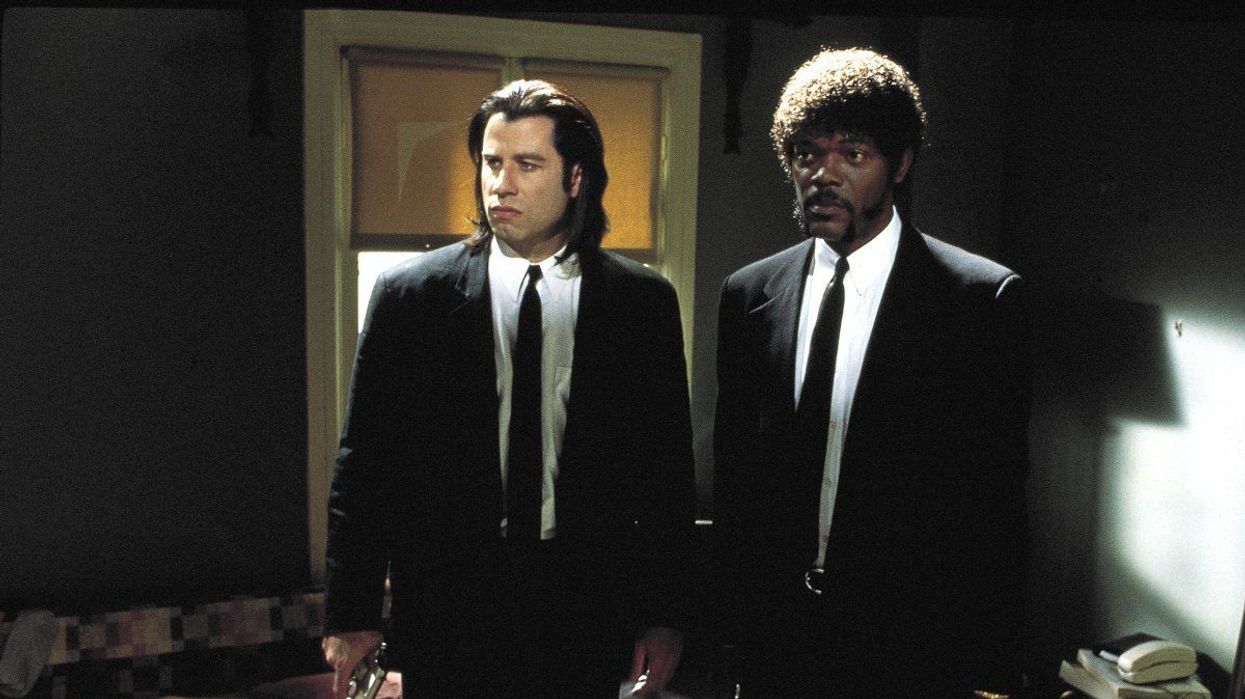6 Screenwriting Tips from Quentin Tarantino's 'Pulp Fiction'
Quentin Tarantino knows how to write some great screenplays.

Few movies drop and make as much noise as Pulp Fiction. Sure, he was already popular from Reservoir Dogs, but this is the movie that really put Tarantino on the map and it started a new wave in Hollywood. Since then, Tarantino has dazzled us with his thoughtful and challenging movies that are full of incredible characters, storylines, and inspirational filmmaking.
We thought we should bring it back to Pulp Fiction and discover all the screenwriting lessons we can glean from that movie. This will be fun.
Check out this video from Outstanding Screenplays first.
6 Screenwriting from Quentin Tarantino's Pulp Fiction
1. Build Suspense
One of my favorite things about Pulp Fiction is that it does a great job of building suspense. It feels like the early scenes involve us watching dominos tremble. We see things get set up and then we wait for them to pay off. Everything is always building until we get these vicious pops of story and of the character and story payoffs we have been waiting to see pan out.
2. Universal Human Topics
Even though this is a movie about hitmen, gangsters, and small-time crooks, they are written as real people. They have real questions, real stories, and real emotions that feel relatable. They've traveled the world, like music, and generally feel like you could be hanging out with a friend. At the time, this was revolutionary.
Now, it's something we want you to do. We want to know the people in your story. And we want them to be going through things that we understand, so we can relate.
3. Characterization
Much like the universal human topics, the character development here is exceptional. Characters matter. Whether you're developing protagonists, antagonists, or minor characters, details about their lives and internal struggles matter.
We want to know their goals and how they factor into character arcs as well as internal and external conflict. Build something special.
4. Moral Choices
Sometimes the best situations you can put characters into are where they are making hard choices. Moral choices are the hardest. They force the audience to assess what they would do in the situation and to take sides around what happens with the characters, as well.
Here, we see lots of moral choices. Does a hitman walk away? Does a boxer save the gangster? Will the gangster forgive the boxer? All of these breed drama and conflict.
5. Make It Simple
You don't have to make things complicated to understand. Everything in this movie is straightforward but done excellently. We understand who is dangerous, who is flirting, and what each person wants at any time. This is one of the smartest and easiest ways to get people to care. We get it all, and then we experience the complicated parts when we are put into tough positions judging these people.
6. Set-ups and Payoffs
Plant and payoffs are the most essential part of screenwriting. When we are dealing with a non-linear story like Pulp Fiction, we are still wanting things we pay off later. Things like Jules retiring and Vincent being alone. Things like the briefcase being carried and opened. And even things like the important watch that gets left behind.
Every detail in your screenplay matters. No one likes reading long-winded paragraphs where you describe stuff that can't or won't happen on the screen. So when you're using plant and payoff, you want to do it in tandem with your outline or beat sheet.
Now get back to writing.
Source: Outstanding Screenplays













